Cosmos Magazine is an award-winning literary science magazine, published in Australia but with a global reach. Cosmos Magazine presents the exciting world of science in a way that everyone can enjoy, with beautiful pictures and clear explanations of the latest developments. Discover the universe around you and what makes it tick.
VIRGINIA APGAR (1909 - 1974)
CONTRIBUTORS
Parting is sweet sorrow
The amazing dragon of Lingwu • A Chinese fossil find tells a new story about the ancient supercontinent Pangaea.
How to make a koala • The koala genome provides clues to its evolution and will aid efforts to save it.
Risk of death flattens out after 105 • Maximum human lifespans are set to increase, concludes an Italian study.
Why zebras have stripes • It’s not to keep them cool.
The news from Mars • Dust storms, organic chemistry and liquid water on the Red Planet.
Blood stains can reveal age of suspect • A new technique may be a key addition to the CSI toolkit.
Fastest maturing vertebrate on record • A fishy strategy to survive drought in Africa.
Out of Africa, into China • Our intrepid ancient ancestors left Africa hundreds of thousands of years earlier than thought.
The physics of economics • Physicists’ predictions outperform Goldman Sachs.
BY THE NUMBERS
Blazar glory • For the first time ever, a high-energy neutrino has been tracked to its source – a galaxy four billion light years away.
FORECASTING PERFECT STORMS
The ray-gun is here • The idea of the ray-gun has been central to science-fiction for decades. Now it’s science fact. CATHAL O’CONNELL reports.
“THE FOURTH NEUTRINO WOULD BE INVISIBLE.”
RULES TO ENCOURAGE WELL BEHAVED AI • Recent developments in artificial intelligence have me wondering.
MORE NEUTRINOS, MORE PROBLEMS
ANECDOTES, PLACEBOS AND TRADITIONAL MEDICINE
FROM THE FRONT LINE • Molecular biology and an old Soviet seedbank may hold the key to feeding a warming world. FIONA MCMILLAN reports.
Better wine through chemistry • Tasmanian researchers are digging down to the molecular level in search of ways to make better sparkling wine, faster. FIONA MCMILLAN reports.
ALIEN INTELLIGENCE • How did the squishy octopus evolve its unique intelligence? Perhaps by playing fast and free with the genetic code. ELIZABETH FINKEL investigates.
PLASTIC PLANET • As plastic pollution covers the globe, can science provide solutions? MICHAEL LUCY investigates.
THE STEM CELL RACE • We’ve been waiting 20 years for human embryonic stem cells to deliver spare parts. MEGAN MUNSIE takes a look at the winners coming down the track.
STILL IN THE DARK • Is it time to admit that cosmology is ensnared by dimly understood forces? MICHAEL BROOKS investigates.
WHY WE THINK DARK MATTER EXISTS
NO FUNGI, NO US • THE EPIC TALE OF HOW FUNGI MADE OUR WORLD
Gravitational waves of emotion • Science meets poetry in a creative response to the Nobel Prizewinning discovery documenting the existence of gravitational waves. RICHARD WATTS reports.
How to avoid AI dystopia • Australian AI policy expert Ellen Broad argues that it’s not the programs that are flawed, but the humans who make them. She speaks to CONOR PURCELL.
Mental matchsticks • Learning patterns is the key to winning a game of Nim.
From absurd ideas to black holes • A shipbound student with time to kill was the first to figure out the fate of dying stars.
CONVERSATION STARTER
Science, and how it works
Galileo, magnifico
Global Worming
EARTH’S MOST VOLCANIC PLACES • Some countries are famous for images of spewing lava and mountainous...
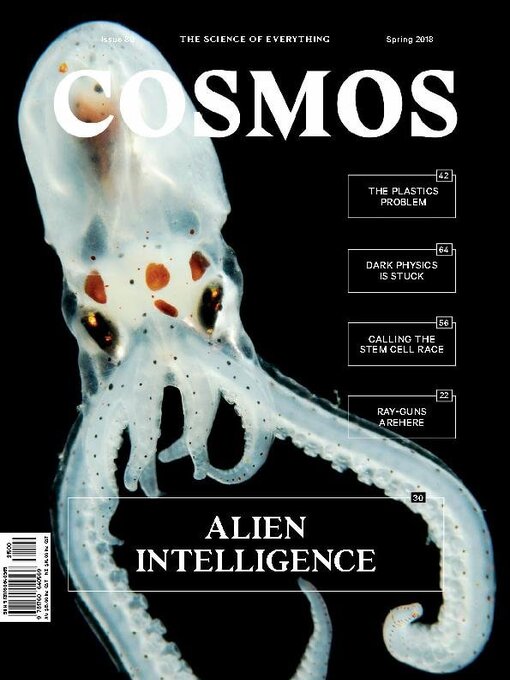
 Issue 102
Issue 102
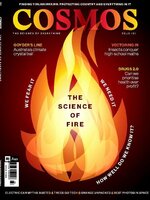 Issue 101
Issue 101
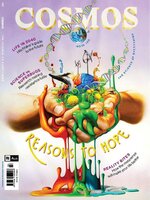 Issue 100
Issue 100
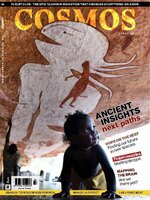 Issue 99
Issue 99
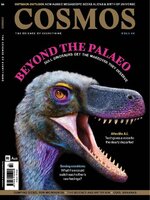 Issue 98
Issue 98
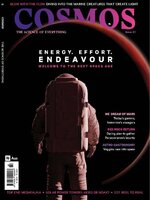 Issue 97
Issue 97
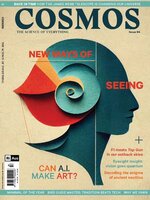 Issue 96
Issue 96
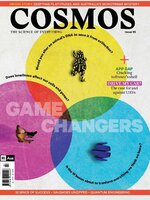 Issue 95
Issue 95
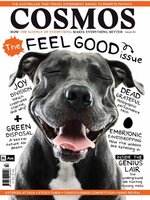 Issue 94
Issue 94
 Issue 93
Issue 93
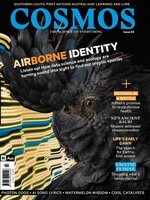 Issue 92
Issue 92
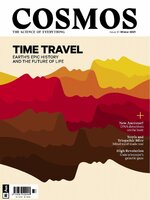 Issue 91
Issue 91
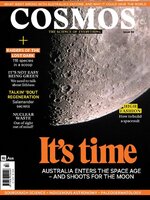 Issue 90
Issue 90
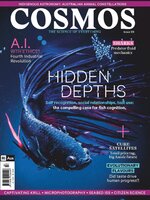 Issue 89
Issue 89
